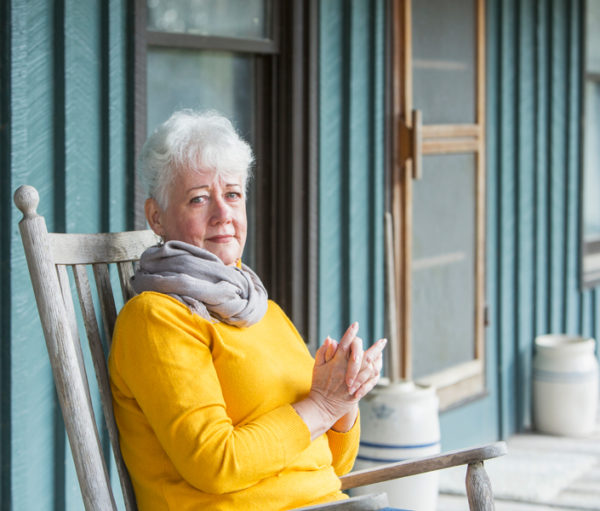Seniors and Anxiety Disorders

These days, it seems like people are worrying a lot more. The ongoing pandemic, of course, is top of mind. Economic uncertainty and political turmoil can also make us fretful. Personal and family problems might add to our cares. But if an older loved one seems to be worrying a lot of the time, it might be a sign of an anxiety disorder. An April 2021 report from Boston College showed that as the pandemic progressed, the rate of anxiety disorders has increased by 50%.
We’ve all experienced worries that turned out to be about nothing. Maybe we left home in a hurry one day, and wondered if we left the stove on. Maybe we did leave it on! But people with an anxiety disorder might worry about that stove every time they walk out the door.
If you notice that a senior loved one is feeling anxious much of the time, encourage them to seek an evaluation right away. A medication review might be the first step; some prescription and nonprescription drugs can make us feel anxious. Anxiety also might be caused by an illness. It can even be one of the earliest symptoms of a heart or lung condition, hormonal disorder, inflammatory illness or dementia.
Yet more often, it’s not illness that leads to anxiety, but the other way around! Anxiety disorders raise the level of stress hormones in the body, and this can rob older adults of healthy sleep, harm their relationships, and raise their risk of heart disease, high blood pressure, stroke, digestive problems and osteoporosis. A February 2021 study from the American Academy of Neurology even showed that anxiety hastens the onset of Alzheimer’s disease.
The good news is, anxiety disorders are treatable. Treatments include:
Counseling. Cognitive behavioral therapy with a trained mental health professional can help your loved one understand the roots of their anxiety, and learn new thinking patterns to manage it. These days, those sessions might take place online as we continue to practice social distancing.
Exercise. Many mental health experts say a good workout can divert us from our cares. It can also raise our heart rate in a way that improves the level of beneficial chemicals in the brain. Exercise can even calm the amygdala, which is the part of the brain that causes us to react to threats—real, overblown, or totally imagined.
Other lifestyle changes. Stress management techniques, meditation, getting more sleep, improving diet and limiting alcohol and caffeine may all lower your loved one’s feelings of anxiety.
Medications. While medication shouldn’t be the first choice of treatment for older patients, several classes of drugs can be effective.
Some older adults hesitate to report symptoms of anxiety to their health care provider. They think they should be able to handle their feelings on their own. Family can gently encourage them to seek professional help. It can be tricky to bring up the subject—if you ask “How are you feeling?” the answer might well be “fine,” even though it’s obvious they aren’t feeling fine at all! You could start the conversation by saying you’ve noticed that they seem withdrawn, or they’re sleeping a lot, or seem fretful.
Reassure them that everyone has experienced anxiety—maybe you have yourself. Then, prepare a list of resources to offer your loved one. This might include the names and numbers of a physician, therapist, or community health clinic that they can reach out to if they’re ready to talk to a professional. Continue to encourage them to share their feelings, and assure them that tackling anxiety head on is nothing to be ashamed of, but is in fact a sign of strength.
The information in this article is not meant to replace the advice of your health care provider. Talk to the doctor if you or a loved one is experiencing feelings of anxiety.
Source: IlluminAge


